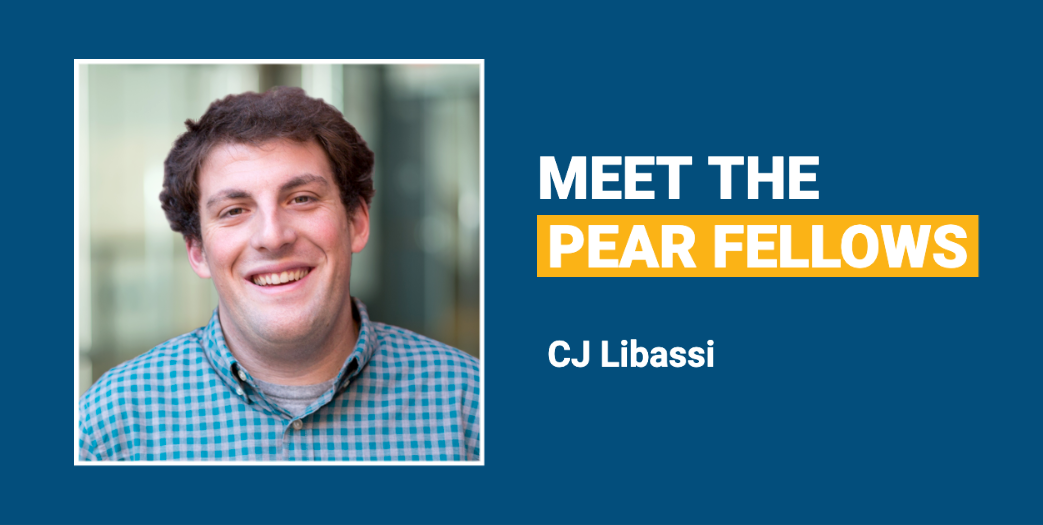CJ Libassi already had a lot of experience in education research when he came to Teachers College. But as a PhD student and member of the first class of Postsecondary Education Applied Research (PEAR) fellows, he’s digging deeper into quantitative methods and exploring his interests in college access and student loan policy. Learn more about Libassi in the fourth installment of our series on the PEAR fellows.
What were you doing before you became a PEAR fellow?
I worked in higher education research and policy at the College Board, the Center for American Progress, and the Education Policy Initiative at the University of Michigan.
What would you like to accomplish while you’re a PEAR fellow?
I would like to continue to do research in higher education policy, specifically on access and quality issues, faculty labor markets, and higher education financing (including student loan policy and loan-based accountability).
What does the PEAR fellowship mean for your career?
It will give me the opportunity to continue advancing my training in causal methods, as well as give me the space to pursue research projects of my own devising. Hopefully, it will allow me to someday be a principal investigator doing research either in government or academia.
What are your research interests?
I am very interested in access to higher education for low-income students, the quality of higher education institutions, and the ways we hold institutions accountable for their investments in student success (or lack thereof), especially in terms of their costs and the student loans that result from the institutions’ choices.
What would you like to do after your fellowship ends?
Ideally, I would like to continue doing research, but I’m not sure if that will be in academia, in government, or at a think tank. But my key interest is doing policy-oriented quantitative social science research in higher education, wherever that might be.
What initially attracted you to the field? What motivates you to stay in it?
I am interested in education and the opportunities that are unfairly afforded to some students but not others, often because of race and income status. I was a teacher in Prince George’s County, Maryland, through Teach for America and saw many of the inequities my students faced and how policy shaped the opportunities available to them.
I am interested in research methods as they relate to these issues because I think many of the questions we have about how to make the world better are empirical questions without obvious answers, and rigorous research is the only way to reliably uncover the best path forward.




